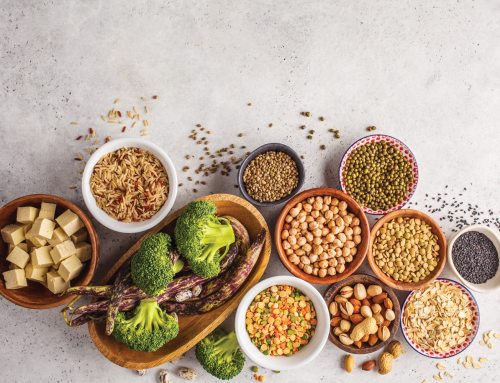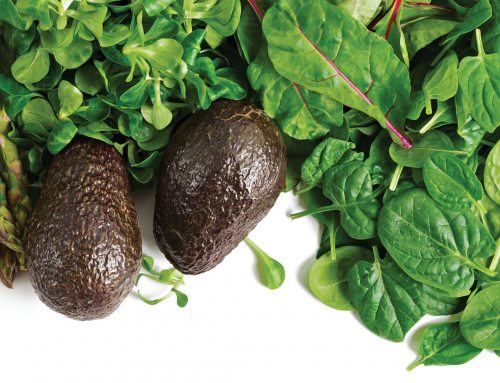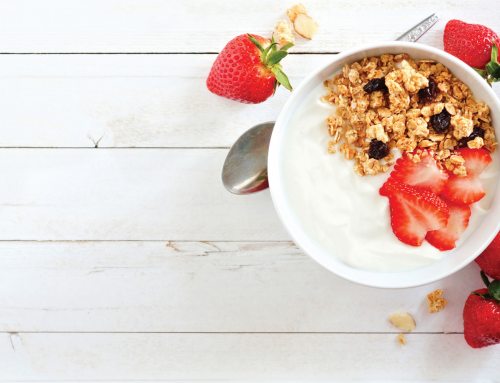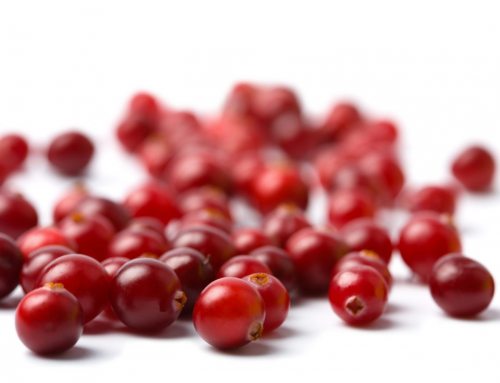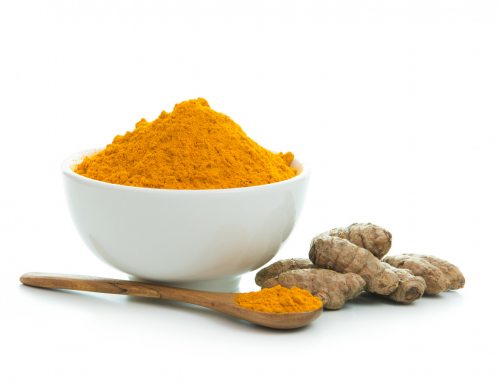7 Dietary Recommendations for Cancer Prevention
The following recommendations are from the World Cancer Research Fund and the American Institute for Cancer Research (AICR) Second Expert Report. Research has shown that following these guidelines can reduce cancer risk.
Maintain a healthy weight. Aim for weight in the healthy BMI range, which is 18.5-24.9 for adults. Excess fat can release hormones such as insulin and estrogen into the bloodstream, which can promote cancer growth.
Be active. For maximum health benefits, adults should participate in physical activity for 60 minutes of moderate activity or 30 minutes of vigorous activity daily. Not only can physical activity keep you at a healthy weight, it can also keep those cancer-promoting hormones at bay. Don’t have 30-60 minutes to spare on some days? Try getting some physical activity in small increments. Take 15 minutes to get up and move around at the office every couple of hours or park a bit farther away from where you’re headed to get in a few extra steps.
Avoid sugary drinks and processed foods. Beverages that are high in sugar, such as sodas, fruit juice, and sweet tea are calorie dense choices. Consuming these options along with processed foods (think anything packaged) on a regular basis can lead to weight gain, putting you at risk for being overweight or obese which ultimately indicates a higher risk for cancer.
Eat a variety of fruits, vegetables, whole grains, and legumes. Plant foods, such as fruits, vegetables, nuts, seeds, whole grains, and beans have tons of cancer-fighting properties, such as phytochemicals, vitamins, minerals, and fiber. Aim for two-thirds of your plate to be filled with plant-based foods for a maximum benefit.
Limit alcohol. If alcohol is consumed, it should be limited to 1 drink per day for women and 2 drinks per day for men. The best way to prevent cancer, however, is to avoid alcohol altogether.
Limit foods high in salt and foods processed in salt. A high salt intake can damage the lining of the stomach, which may increase your risk for developing stomach cancer. Choose low-sodium options and avoid processed foods that can be high in salt. Salt-preserved foods, such as bacon, jerky, and salted fish should be avoided.
Don’t rely on supplements. The best way to get cancer-fighting nutrients is through a diet that is rich in fruits, vegetables, whole grains, and legumes. Although the expert panel from the AICR does not discourage the use of multivitamins or specific supplements, you should not expect any specific supplement to reduce your risk for cancer as well as a healthy diet can.
# # #
Amanda Stewart, Dietetic Intern from Meredith College and Ashley Acornley, MS, RD, CSSD, LDN
Ashley Acornley, MS, RD, LDN is sports dietitian at Triangle Nutrition Therapy Inc She has an undergraduate degree in Kinesiology and a Masters degree in nutrition. In addition to being a Sports Dietitian, she is also a Personal Trainer. She teaches competitive athletes ways to fuel and hydrate to optimize sports performance and maximize health


